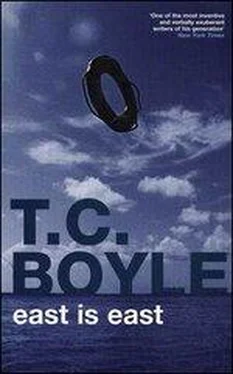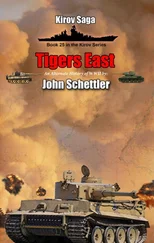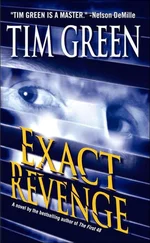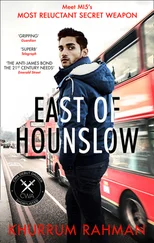Tom Boyle - East is East
Здесь есть возможность читать онлайн «Tom Boyle - East is East» весь текст электронной книги совершенно бесплатно (целиком полную версию без сокращений). В некоторых случаях можно слушать аудио, скачать через торрент в формате fb2 и присутствует краткое содержание. Жанр: Современная проза, на английском языке. Описание произведения, (предисловие) а так же отзывы посетителей доступны на портале библиотеки ЛибКат.
- Название:East is East
- Автор:
- Жанр:
- Год:неизвестен
- ISBN:нет данных
- Рейтинг книги:5 / 5. Голосов: 1
-
Избранное:Добавить в избранное
- Отзывы:
-
Ваша оценка:
- 100
- 1
- 2
- 3
- 4
- 5
East is East: краткое содержание, описание и аннотация
Предлагаем к чтению аннотацию, описание, краткое содержание или предисловие (зависит от того, что написал сам автор книги «East is East»). Если вы не нашли необходимую информацию о книге — напишите в комментариях, мы постараемся отыскать её.
, praised by
in
as "one of the most exciting young fiction writers in America," the result is a sexy, hilarious tragicomedy of thwarted expectations and mistaken identity, love, jealousy, and betrayal.
East is East — читать онлайн бесплатно полную книгу (весь текст) целиком
Ниже представлен текст книги, разбитый по страницам. Система сохранения места последней прочитанной страницы, позволяет с удобством читать онлайн бесплатно книгу «East is East», без необходимости каждый раз заново искать на чём Вы остановились. Поставьте закладку, и сможете в любой момент перейти на страницу, на которой закончили чтение.
Интервал:
Закладка:
Nothing. No reaction. The two smaller faces flanked the larger and the three pairs of rinsed-out eyes fastened on him like pincers. The wind screamed. The trees danced. “Toor-ist!” Hiro repeated, cupping his hands to his mouth.
What followed was as astonishing as anything that had happened since he’d taken the plunge from the wingdeck of the Tokachi-maru: they believed him. “Hold on!” the man called as he might have called to a drowning child, and in the next moment he was down off the platform and splashing toward him through the mire. It was nothing short of a rescue. The man threw Hiro’s arm over his shoulder as if he were a casualty of war, as if the rain were a shower of bullets and hot shrapnel, and scuttled back with him to the shelter, where the woman and boy were in motion too, hastily hanging some sort of dropcloth as a protection against the elements. Within minutes the fire was snapping, he was toweling his hair dry and the man was offering him a sleeping bag to wrap himself up in. Then the kettle sang out and a Styrofoam cup of hot instant noodles was thrust into his hand and he was eating while the three fed the fire, stopped the holes in the roof and watched him with bleeding eyes. “More?” the man asked after Hiro had finished, and when he nodded yes, a second Cup O’Noodles appeared as if he’d conjured it.
“You’ll need dry clothes,” the man said, and before he could even communicate the need to the woman, she was digging through a backpack crammed with shirts, shorts, towels and socks. Backpack? Were they campers, then? And if they were, why weren’t they camping out on the clean sweet dry expanse of the open prairie instead of in this sewer? Gaijin: he would never understand them, not if he lived to be a hundred and four. They offered him clothing—a T-shirt that bore a huge childish drawing of a smiling face and the legend WORLD’S GREATEST DAD, a pair of too-tight underwear and cut-off blue jeans that would never have fit him if he hadn’t suffered so much privation of the hara. Hiro went off into the far corner to dress, all the while bowing and asserting his gratitude, calculating on and giving thanks so profuse he could have raised a shrine to them. Did he want more to eat? He did. And then it was meat snapping on the grill, potato chips, hard-boiled eggs, carrot sticks, cabbage salad and pound cake. “Dōmo” he said, over and over, “dōmo arigatō .”
They were watching him. Sitting there in a semicircle before him, hands clasped to their knees, eyes aglow with charity and fellow-feeling. They watched him eat as a doting young mother might watch her baby spooning up his mashed peas and carrots, hanging on every bite. Inevitably, though, now that they’d rescued and fed him, the questions began. “You’re a Filipino?” the man asked as Hiro fed a wedge of pound cake into his mouth.
Careful, careful. He’d decided that the best policy—the only policy—was to lie. “Chinese,” he said.
Their faces showed nothing. The smoke swirled. Hiro reached for the last piece of pound cake. “And you were out here on a day trip?” the man persisted.
Day trip, day trip: what was he talking about? “Excuse and forgive me, but what is this ’day trip’?”
“In the swamp. As a tourist—like us.” For some reason the man laughed at this, a hearty, beautifully formed laugh that bespoke ease and health and success in business, and which burst from an orthodontic marvel of a mouth. “I mean, did your boat overturn, was anyone hurt? Were you alone?”
“Alone,” Hiro said, leaping at the answer provided for him. He felt that a smile would be helpful at this juncture, and so he gave them one, misaligned teeth and all. This lying business wasn’t so hard really. It was the American way, he saw that now. He was amazed that he’d had such trouble with it at Ambly Wooster’s.
They were the Jeffcoats, from Atlanta, Georgia. From New York, actually. Jeff, Julie and Jeff Jr. (The boy blushed when his father introduced him.) Hiro bowed to each in turn. And then they were watching him again, but with a look of expectation now. What? he wanted to ask them. What is it?
“And you are—?” the man prompted.
“Oh!” Hiro let a little gasp of embarrassed surprise escape him. “How silly. Forgetful. I am—” and then he stopped cold. Who was he? He’d told them he was Chinese, hadn’t he? Chinese, Chinese: what did the Chinese call themselves? Lee, Chan, Wong? There was a place called Yee Mee Loo two blocks from his obā san’s apartment, but the name was ridiculous—he, Hiro Tanaka, standard-bearer for Mishima and Jōchō before him, couldn’t be a Yee Mee Loo. Never.
“Yes?” They were leaning forward, smiling like zombies, all three of them, absolutely delighted to be out here in this drizzling hellhole exchanging pleasantries with a mud-smeared Chinaman. Rain dripped from the timbers overhead, fell like shot on the surface of the water before them.
“I am called … Seiji,” he decided finally—what would they know, Americans; how would they know a Chinese from an Ugandan?—“Seiji … Chiba.”
And then, feeling expansive, dry and warm and wrapped in a down blanket, his stomach full for the first time in days, he told them the pathetic story of his misadventures in the swamp. His boat had overturned, yes, two days ago—it was a crocodile that attacked him. It dropped from the trees on him and he wresded with it, but the boat went under and he lost everything, all his bags of meat, his Cracker Jack, his Levi’s and his surfboard. And so he wandered, on the verge of death, eating berries and drinking from the swamp, until they rescued him—and he ended by praising them for a full five minutes, in English and Japanese both.
When he was finished, there was a silence. The storm had let up and insects had begun to whine through the fevered air; something bellowed in the night. “Well,” the man said, clapping his hands together like a referee, “I guess we all better turn in, huh? It’s been quite a day.”
Sometime in the deep still vibrating hub of that night, when the chittering and hooting and screeching had subsided to a muted roar and the new generation of mosquitoes lay waiting to be born, Hiro awoke shivering and discovered that the rain had started up again. He knew where he was at once and knew too that the insulated blanket they’d given him—these Amerikajin seemed to have two of everything—was soaked through. The wind had shifted to the north and there was the unmistakable scent of autumn on it. But what month was it? August? September? October? He had no idea. He’d been gone so long, living like a bum on the street, like a barbarian in a cave, that he didn’t even know what month it was, let alone what day or hour. Shivering, he thought about that, and began to feel very sorry for himself indeed.
They would be after him soon, he knew that. The b ō ifurendo would go to the police and the tired pointy-nosed little sheriff would round up his Negroes and dogs and take a flotilla into the swamp, speedboats and pontoon boats, canoes and dinghies and floating jail cells. The spatterface and his hard little companion would be there, Ruth, Captain Nishizawa—they’d batter the trees with helicopters, tear open the sky with their sirens and the long-drawn-out bloodthirsty howls of the dogs. If they hated him two days ago, they loathed him now to the depths of their being. He’d made fools of them. And they would come after him with everything they had.
It was a shame. It was. If that Mercedes had belonged to anyone but the chief butter-stinker himself, if it had belonged to an itinerant peddler, an encyclopedia salesman, a hit man, Hiro could have been a thousand miles away by now—in the Big Sky Country, in Motown or at the Golden Gate. But it hadn’t, and he wasn’t. What he needed, he realized with a jolt of intuition, was a boat. If he had a boat he could paddle his way to the edge of the swamp, strike out cross-country and find a road, and then—then what? More double-dealing? More hate? More hakujin backstabbing and Negro viciousness? Yes, and what choice did he have—they were going to hunt him down like an animal. He lay there, wet and miserable, wrapped in his sheet of lies, and he hardened his heart. He knew where there was a boat. A canoe. Sleek and quick and provisioned for an army.
Читать дальшеИнтервал:
Закладка:
Похожие книги на «East is East»
Представляем Вашему вниманию похожие книги на «East is East» списком для выбора. Мы отобрали схожую по названию и смыслу литературу в надежде предоставить читателям больше вариантов отыскать новые, интересные, ещё непрочитанные произведения.
Обсуждение, отзывы о книге «East is East» и просто собственные мнения читателей. Оставьте ваши комментарии, напишите, что Вы думаете о произведении, его смысле или главных героях. Укажите что конкретно понравилось, а что нет, и почему Вы так считаете.











